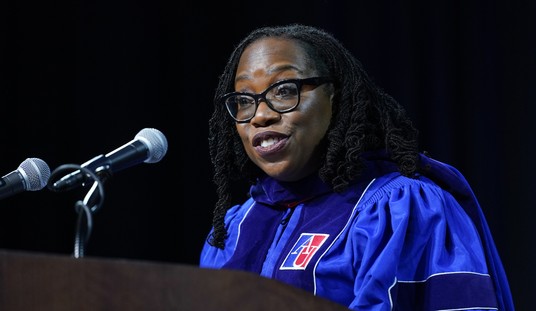Democrats have tried building some new spin from polls like the WaPo/ABC travesty dumped yesterday, claiming to have captured momentum and assuring their supporters that the base has finally become energized enough to head off disaster on November 2nd. Veteran political analyst Charlie Cook has heard this all before, and in fact can even tell National Journal readers when — 2006, when Republicans said the exact same thing:
While the Cook Political Report has a general policy of not putting unindicted incumbents in categories worse than our “Toss Up” column, which is akin to the critical ward of a hospital, we are now looking at moving a dozen or so Democratic House incumbents into the Lean Republican column (Sen. Blanche Lincoln is already there).
Furthermore, only one GOP incumbent today seems to be a candidate for moving into Lean Democratic. With less than a month to go to the election, something could obviously happen that would change the trajectory of this election — but it would have to be something pretty dramatic, and I don’t see that happening.
For most of this cycle, the buzz had Republican-leaning outside groups spending their millions on Senate races and forgoing most House contests. But so far, outside spending geared toward helping GOP House candidates is far outpacing the $5.6 million the Karl Rove-advised American Crossroads has laid down in Senate races. …
At the outset of October, the two biggest fears among rank-and-file House Democrats are that Republican outside groups are finally for real and set to deluge the airwaves, and that the DCCC squandered its September opportunity to preemptively discredit GOP challengers.
While Democrats start airing blistering attack ads with just several days left before early voting starts in most states, some will be wondering whether it’s already too late. For Democrats who haven’t taken advantage of September to build leads by defining their GOP opponents, cutting through the clutter of outside-group spending in October might prove next to impossible.
Cook is hardly alone in dismissing the late-surge braggadocio from Democrats. His Hotline colleague Josh Kraushaar calls Democratic optimism “a house of cards”:
Much of the newfound glimmer of hope comes from a misinterpretation of polling data released by Democratic campaigns and the Democratic Congressional Campaign Committee. Many of the polls aren’t all that encouraging for Dems, but have been spun to present a misleadingly optimistic picture.
In a House race, where many voters are unfamiliar with challengers until the very end, it’s not nearly as instructive to look at who’s winning as it is to see whether the incumbent is winning a majority of the vote. Traditionally, most of the undecided vote breaks toward the challenger — especially in a wave election. It’s not uncommon for a congressman to be up “double digits” but still be in serious trouble, given the anonymity of the opponent.
And a staggeringly high number of Democratic incumbents are below the 50 percent mark, including members in much of the polling conducted by Democratic firms released to counteract the GOP narrative. House Race Hotline editor Tim Sahd compiled an invaluable database of all the House race polling conducted this cycle and found 66 Democratic incumbents sitting below that magic 50 percent number.
That number should send shivers down the spines of Democratic strategists. In 2008, when Democrats coasted to victory across the board, 32 House Republican incumbents were under the 50 percent mark in the last poll of the cycle, and 14 of them lost — a 44 percent mortality rate. When you account for all the vulnerable open seats and the competitive races where polling hasn’t yet been released, it’s very hard to see how Democrats can hold their majority.
Why is the 50% threshold more important for incumbents than challengers? Incumbents are almost always more well known, and have track records that the public can judge. An incumbent who can’t convince half of his or her current constituents to endorse that body of work in the last few weeks before the election is unlikely to get many more votes on Election Day. It takes either a completely unacceptable challenger or some game-changing event to keep the undecided from voting against an incumbency, especially when the economic outlook is so gloomy and the actions taken by Congress are so unpopular.
In the polling today from The Hill of freshman Democrats in the House, few of the 12 have numbers above forty, let alone fifty percent. That indicates a massive wipeout in races that Democrats claimed as mandates for radical change. It also shows that Democrats haven’t been able to destroy their GOP challengers at all, and as Cook says, it’s probably too late to have much impact now.








Join the conversation as a VIP Member